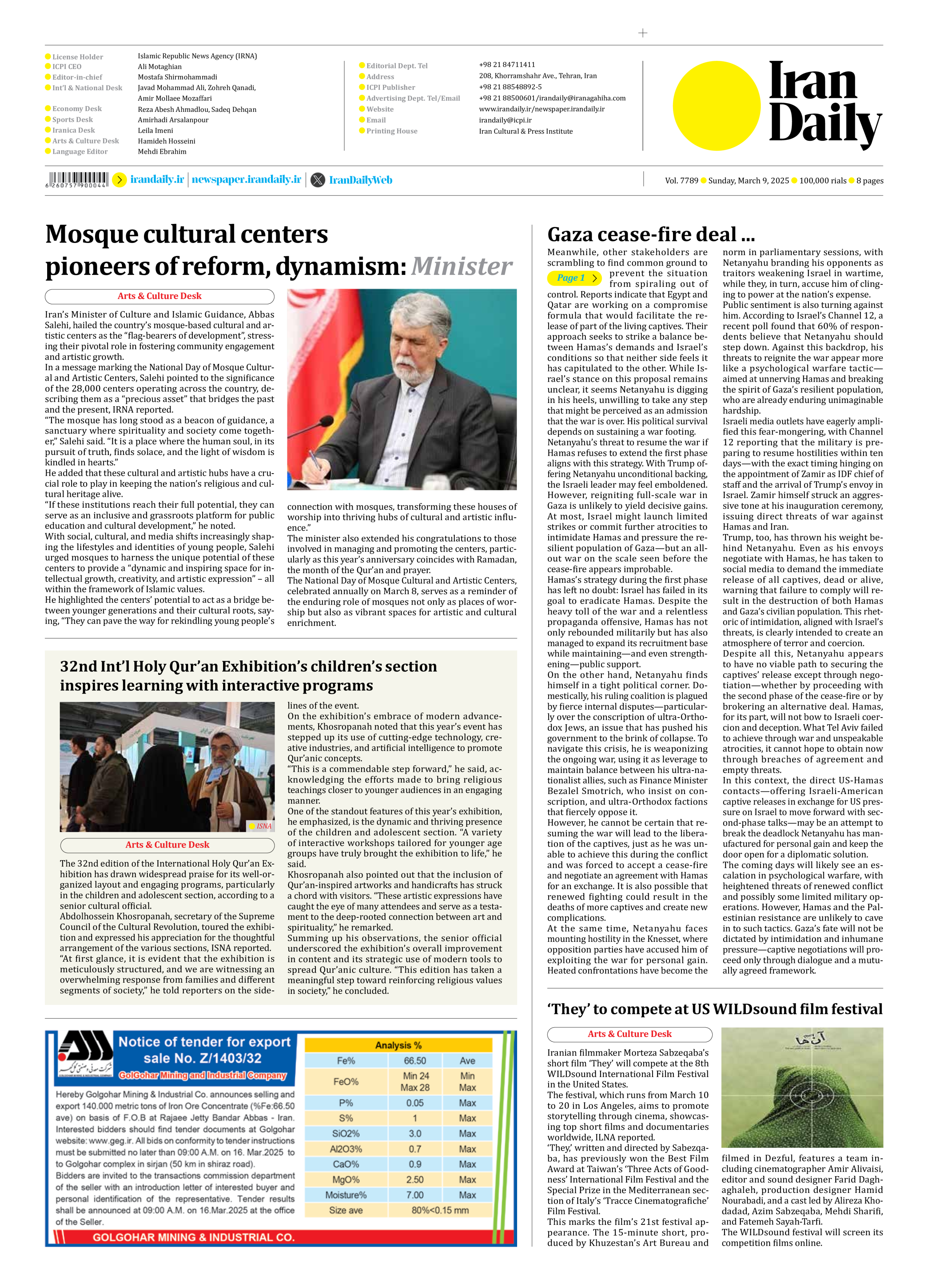
Mosque cultural centers pioneers of reform, dynamism: Minister
Iran’s Minister of Culture and Islamic Guidance, Abbas Salehi, hailed the country’s mosque-based cultural and artistic centers as the “flag-bearers of development”, stressing their pivotal role in fostering community engagement and artistic growth.
In a message marking the National Day of Mosque Cultural and Artistic Centers, Salehi pointed to the significance of the 28,000 centers operating across the country, describing them as a “precious asset” that bridges the past and the present, IRNA reported.
“The mosque has long stood as a beacon of guidance, a sanctuary where spirituality and society come together,” Salehi said. “It is a place where the human soul, in its pursuit of truth, finds solace, and the light of wisdom is kindled in hearts.”
He added that these cultural and artistic hubs have a crucial role to play in keeping the nation’s religious and cultural heritage alive.
“If these institutions reach their full potential, they can serve as an inclusive and grassroots platform for public education and cultural development,” he noted.
With social, cultural, and media shifts increasingly shaping the lifestyles and identities of young people, Salehi urged mosques to harness the unique potential of these centers to provide a “dynamic and inspiring space for intellectual growth, creativity, and artistic expression” – all within the framework of Islamic values.
He highlighted the centers’ potential to act as a bridge between younger generations and their cultural roots, saying, “They can pave the way for rekindling young people’s connection with mosques, transforming these houses of worship into thriving hubs of cultural and artistic influence.”
The minister also extended his congratulations to those involved in managing and promoting the centers, particularly as this year’s anniversary coincides with Ramadan, the month of the Qur’an and prayer.
The National Day of Mosque Cultural and Artistic Centers, celebrated annually on March 8, serves as a reminder of the enduring role of mosques not only as places of worship but also as vibrant spaces for artistic and cultural enrichment.







